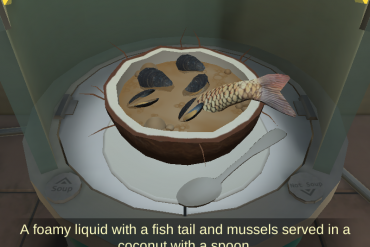June 25th
…Robert Yang presents an illuminating reading list and personal evaluation on cultural scamming, translation, and exchange.
“If I had to sum up all this conversation, I’d say it feels like talking about cultural appropriation is ultimately a bit of a trap, but at the same time, it is necessary for us to fall into it. The alternative is to fall into a much worse trap, full of unchallenged racism and ignored pain and hot molten lava. Compared to that trap, this one isn’t so bad, right? And then when we eventually figure out how to crawl out…





